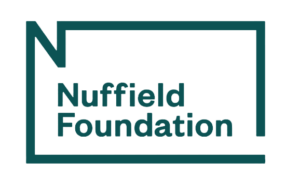About the project
Project overview
This project is investigating community-led planning across all four nations of the UK, focusing on local areas where take-up of these initiatives is less common. The full title of the project is ‘Just Neighbourhoods? Under-representation in UK community-led planning’. The work is spanning England, Scotland, Wales and Northern Ireland.
Community-led planning refers to land-use or spatial planning activities led (or at least guided) by community members rather than planning professionals. It is aimed at mobilising local communities to help shape the future of their neighbourhood.
Despite the urgent need for greater social and environmental justice, the connection between democratising planning in this way and delivering just outcomes is unclear. Concerns have been raised about representation, inclusion and accountability, particularly in places where community-led planning has generally been less successful.
“most plans do not talk about equity, nor do they include many goals and recommendations that would advance equity. More recent plans, plans in communities with more planning capacity, plans in coastal communities, and plans with strong public participation processes have stronger equity orientations”
(Loh and Kim, 2021, p.181).
Research objectives
The project is addressing five key objectives:
- Explore understandings of social and environmental justice among selected communities across the UK.
- Examine the nature of representation and inclusivity within community-led planning (CLP) spaces and its relationship with outcomes.
- Understand how the design, process, and practice of CLP shapes the forms and outcomes of activity.
- Assess the added value CLP exhibits in relation to social and environmental justice outcomes.
- Disseminate best practice guidance to communities, government, and others involved in shaping and practising CLP.
How the research will be carried out
The research is being completed in three main phases. The team are:
- Co-creating a theoretical framework; review the UK and international CLP literature; review the content of all CLPs produced in the 20% most deprived wards across the four UK nations; and select five local authorities (two in England, one in Scotland, one in Wales, and one in Northern Ireland) as case study areas for the second phase of the project.
- Using a range of ethnographic methods, including documentary analysis, direct observation of community meetings, and semi-structured interviews, to investigate the complex power dynamics of participation within 10 local communities (two per case study authority): one community participating in CLP and a second community not participating in CLP but active in other voluntary arenas.
- Convening eight stakeholder workshops to: synthesise the case study findings using the theoretical framework developed in the first two phases; consolidate and validate the findings; and discuss policy options.
How this research will make a difference
The findings will raise awareness of the potential impacts and limitations of community-led planning, and inform the development of best practice guidance for communities, policymakers, and others involved in shaping and practising it across the UK.
It is hoped this will increase the potential of community-led planning to produce more just outcomes.
Our X (formerly Twitter) handle is: @JustCLP (this is now dormant) – see our Bluesky account
Nuffield Foundation
This project is funded by the Nuffield Foundation.

The Nuffield Foundation is an independent charitable trust with a mission to advance social well-being. It funds research that informs social policy, primarily in Education, Welfare, and Justice. It also funds student programmes that provide opportunities for young people to develop skills in quantitative and scientific methods. The Nuffield Foundation is the founder and co-funder of the Nuffield Council on Bioethics, the Ada Lovelace Institute and the Nuffield Family Justice Observatory. The Foundation has funded this project, but the views expressed are those of the authors and not necessarily the Foundation. Visit www.nuffieldfoundation.org